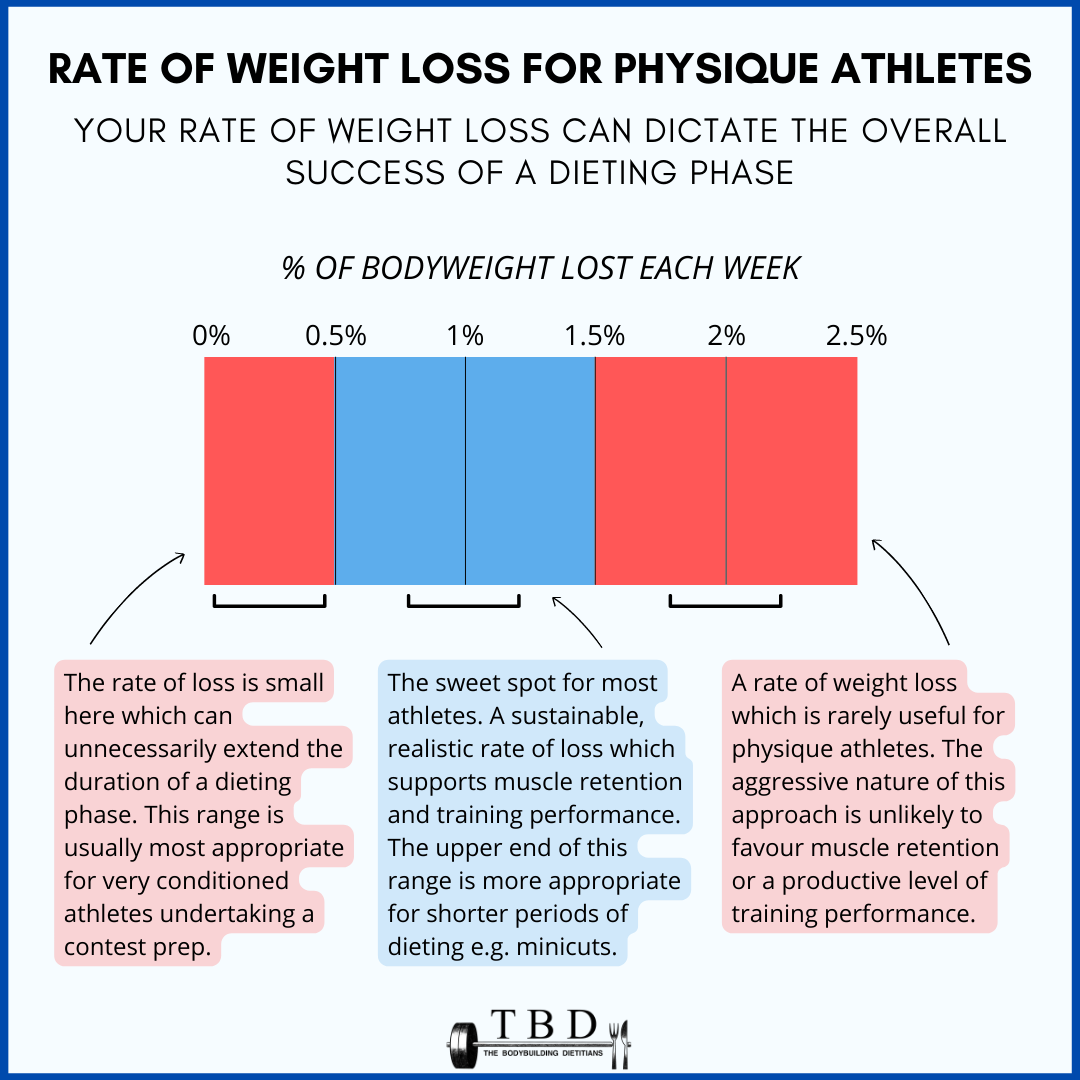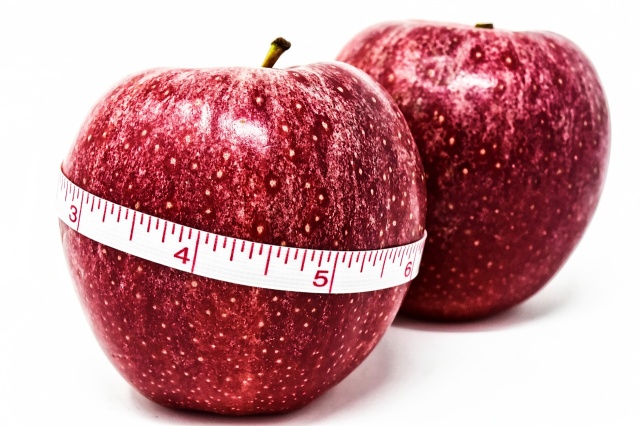You should aim to lose weight at a steady rate of 1-2 pounds per week. Rapid weight loss can be unhealthy.
Losing weight is a journey that requires consistency and patience. Crash diets and extreme measures can lead to muscle loss and nutritional deficiencies. A sustainable approach ensures long-term success and better health outcomes. Focus on balanced diets, regular exercise, and healthy lifestyle choices.
Seek guidance from healthcare professionals to develop a personalized plan. Maintaining a steady pace helps prevent the common pitfalls of quick fixes. Gradual weight loss is more effective and manageable. Aim for sustainable changes that fit into your daily routine. This method not only helps shed pounds but also promotes overall well-being.

Credit: www.beachbodyondemand.com
Setting Realistic Goals
Setting realistic goals is crucial for successful weight loss. Unrealistic goals can lead to frustration and failure. Aim for achievable targets to stay motivated and on track.
Short-term Vs Long-term Goals
Short-term goals are easier to achieve and offer quick wins. Examples include losing 2 pounds in a week or exercising three times a week. These goals provide immediate motivation and encourage consistency.
Long-term goals focus on broader changes. They might include losing 20 pounds in six months or maintaining a healthy weight for a year. These goals require patience and sustained effort.
| Short-term Goals | Long-term Goals |
|---|---|
| Lose 2 pounds in a week | Lose 20 pounds in six months |
| Exercise three times a week | Maintain a healthy weight for a year |
Personalizing Your Goals
Personal goals should match your lifestyle and preferences. Everyone’s weight loss journey is unique. Customizing your targets increases your chances of success.
Consider your daily routine, diet preferences, and exercise habits. If you love walking, aim to walk 10,000 steps a day. If you prefer home-cooked meals, plan healthy recipes.
- Assess your routine: Identify daily activities you enjoy.
- Set specific targets: Make goals that suit your lifestyle.
- Track your progress: Use a journal or app to stay on track.
Remember, realistic goals are achievable and motivational. Customize your journey for the best results.
Healthy Weight Loss Rate
Understanding the healthy weight loss rate is crucial for long-term success. Losing weight too quickly can harm your body. Aim for a steady and safe weight loss pace. This will help you achieve sustainable results.
Safe Weekly Weight Loss
The general recommendation is to lose 1 to 2 pounds per week. This rate ensures your body adapts well. Rapid weight loss can lead to muscle loss and nutritional deficiencies. A slow and steady pace is more manageable and sustainable.
Here is a quick guide:
| Weight Loss Rate | Recommended Weekly Loss |
|---|---|
| Safe | 1-2 pounds |
| Unsafe | More than 2 pounds |
Factors Influencing Weight Loss
Several factors can influence your weight loss journey. Consider these important elements:
- Diet: A balanced diet with reduced calories is key.
- Exercise: Regular physical activity boosts weight loss.
- Sleep: Quality sleep affects your metabolism.
- Stress: High stress can hinder weight loss efforts.
Each person’s body reacts differently to weight loss strategies. Monitor your progress and adjust as needed. Focus on making healthy lifestyle changes.
Dietary Recommendations
Understanding how to lose weight involves more than just exercise. Dietary recommendations play a crucial role. This section covers key aspects like balanced nutrition and calorie management.
Balanced Nutrition
A balanced diet is essential for weight loss. It ensures your body gets all necessary nutrients. Aim for a mix of proteins, carbohydrates, and fats. Each has a role in maintaining health.
- Proteins: Include lean meats, beans, and eggs.
- Carbohydrates: Choose whole grains, fruits, and vegetables.
- Fats: Opt for healthy fats like olive oil and nuts.
Eating a variety of foods helps you stay full. It also keeps your metabolism active.
Calorie Management
Managing calories is key for weight loss. This means knowing how many calories you consume and burn.
| Food Type | Calories per Serving |
|---|---|
| Vegetables | 50-100 |
| Fruits | 60-120 |
| Proteins | 150-300 |
| Carbohydrates | 200-400 |
Track your intake using a food diary or app. This helps you make healthier choices. Reducing calorie intake by 500 calories a day can lead to a 1-pound loss per week.

Credit: www.healthline.com
Exercise Guidelines
Exercise helps you lose weight and stay healthy. It’s important to follow the right exercise guidelines. You can choose effective workouts and incorporate physical activity into your daily routine.
Effective Workouts
Choosing the right workouts can help you lose weight faster. Here are some effective workouts:
- Cardio Exercises – Running, cycling, and swimming help burn calories.
- Strength Training – Lifting weights builds muscle and boosts metabolism.
- HIIT Workouts – High-Intensity Interval Training burns fat quickly.
- Yoga – Improves flexibility and reduces stress, aiding in weight loss.
Incorporating Physical Activity
Being active throughout the day helps you burn more calories. Here are some ways to incorporate physical activity:
- Take the Stairs – Use stairs instead of elevators.
- Walk More – Aim for 10,000 steps a day.
- Active Breaks – Take short breaks to stretch and move.
- Household Chores – Cleaning and gardening can be great workouts.
| Workout | Calories Burned (30 mins) |
|---|---|
| Running | 300 |
| Cycling | 250 |
| Swimming | 200 |
| Weight Lifting | 150 |
| Yoga | 100 |
Remember to choose workouts that you enjoy. This helps you stay motivated. Always listen to your body and rest when needed. Consistency is key to losing weight and staying healthy.
Monitoring Progress
Monitoring your progress is key to successful weight loss. Tracking helps you understand what works. Adjusting your plan ensures continued progress. Read on for effective methods.
Tracking Methods
There are several ways to track your weight loss. Choose methods that suit your lifestyle.
- Weigh Yourself: Use a scale to measure your weight. Do this weekly.
- Body Measurements: Measure your waist, hips, and other areas. This shows fat loss.
- Progress Photos: Take pictures of yourself. Compare them monthly.
- Food Diary: Keep a journal of what you eat. Track calories and nutrients.
- Fitness Apps: Use apps to monitor your activity. Many are free and easy to use.
Adjusting Your Plan
Sometimes, your plan needs changes. Evaluate your progress every month. Make adjustments based on your results.
- Assess Your Diet: Are you eating too many calories? Reduce portion sizes if needed.
- Review Exercise Routine: Increase intensity or duration. Add variety to your workouts.
- Set New Goals: Aim for smaller, achievable goals. Celebrate each milestone.
- Get Support: Join a weight loss group. Share your journey with others.
- Consult Experts: Speak with a nutritionist or trainer. They can provide tailored advice.
Use these methods to track and adjust. Stay consistent and patient. Your success depends on it.

Credit: www.thebodybuildingdietitians.com
Overcoming Plateaus
Weight loss journeys often hit a snag known as a plateau. A plateau happens when progress stalls. This can be frustrating and demotivating. But don’t worry; breaking through is possible. Let’s explore how you can overcome these plateaus.
Identifying Plateaus
First, it’s important to identify a plateau. A plateau means no weight loss for weeks. Watch for these signs:
- Your weight remains unchanged for 2-3 weeks.
- Your clothes fit the same.
- Your measurements stay constant.
If these signs apply, you may be in a plateau. Identifying it is the first step to overcoming it.
Strategies To Break Through
Breaking through a plateau involves changing your routine. Here are some effective strategies:
-
Adjust Your Calorie Intake:
Sometimes, eating fewer calories can help. Use a calorie calculator to find your new target.
-
Increase Physical Activity:
Add more exercise to your routine. Try new workouts or increase intensity.
-
Change Your Workout Routine:
Switch up your exercises. Your body adapts to repetitive routines.
-
Stay Hydrated:
Drinking water boosts metabolism. Aim for 8 glasses a day.
-
Get Enough Sleep:
Sleep affects weight loss. Ensure 7-9 hours of sleep each night.
Implementing these strategies can help you break through a plateau. Remember to stay patient and persistent.
| Strategy | Action |
|---|---|
| Adjust Calorie Intake | Reduce daily calorie consumption |
| Increase Physical Activity | Incorporate more exercise |
| Change Workout Routine | Try different exercises |
| Stay Hydrated | Drink 8 glasses of water |
| Get Enough Sleep | Ensure 7-9 hours of sleep |
Maintaining Weight Loss
Shedding those extra pounds is just the beginning. The true challenge is maintaining your weight loss. This requires dedication and a shift in lifestyle. Sustainable habits and understanding long-term health benefits can make this journey easier.
Sustainable Habits
To keep the weight off, you need sustainable habits. These habits become part of your daily routine. Here are some key habits to adopt:
- Eat Balanced Meals: Include proteins, vegetables, and whole grains.
- Stay Active: Exercise regularly. Even a 30-minute walk helps.
- Drink Water: Stay hydrated. Water helps control hunger.
- Sleep Well: Aim for 7-8 hours of sleep each night.
Long-term Health Benefits
Maintaining weight loss has many long-term health benefits. These benefits improve your overall quality of life. Here are some key health benefits:
| Health Benefit | Description |
|---|---|
| Reduced Risk of Diseases | Lower risk of heart disease, diabetes, and certain cancers. |
| Better Mental Health | Less anxiety and depression. |
| Improved Mobility | Easier movement and less joint pain. |
| Enhanced Energy Levels | More energy for daily activities. |
By adopting sustainable habits and understanding the long-term benefits, maintaining weight loss becomes manageable. This enhances both your physical and mental well-being.
Seeking Professional Help
Weight loss can be a challenging journey. Sometimes, you need expert guidance. Seeking professional help can make a significant difference in your weight loss success.
When To Consult Experts
Not sure when to seek help? Here are some signs:
- You have tried to lose weight for three months without success.
- You feel overwhelmed by the process and need guidance.
- Your weight is affecting your health or quality of life.
- You have underlying health conditions like diabetes or heart disease.
Consulting an expert can provide you with personalized advice and support. This can be crucial for long-term success.
Available Resources
There are various resources available to help you on your weight loss journey:
| Resource | Description |
|---|---|
| Nutritionists | Experts who can create a personalized meal plan for you. |
| Personal Trainers | Professionals who can design a customized workout routine. |
| Medical Professionals | Doctors who can monitor your health and prescribe medication if needed. |
| Support Groups | Communities that provide emotional support and accountability. |
Using these resources can help you achieve your weight loss goals more effectively. They offer tailored advice, support, and accountability.
Frequently Asked Questions
How Many Times A Week Should I Lose Weight?
Aim to lose weight gradually, targeting 1-2 pounds per week. Focus on a balanced diet and regular exercise.
Is It Enough To Lose Weight 3 Times A Week?
Exercising three times a week can aid weight loss, but combining it with a balanced diet enhances results.
What Is A Healthy Weight Loss Per Month?
A healthy weight loss is 1-2 pounds per week. This translates to 4-8 pounds per month. Sustainable weight loss involves diet and exercise.
How Many Times A Week Should I Weigh Myself For Weight Loss?
Weigh yourself 1-2 times a week for accurate weight loss tracking. Daily fluctuations can be misleading.
Conclusion
Finding the right weight loss frequency depends on individual goals and health. Listen to your body and consult professionals. A balanced approach ensures sustainable results. Remember, consistency is key for long-term success. With the right plan, you can achieve your desired weight safely and effectively.
Keep motivated and stay healthy.


